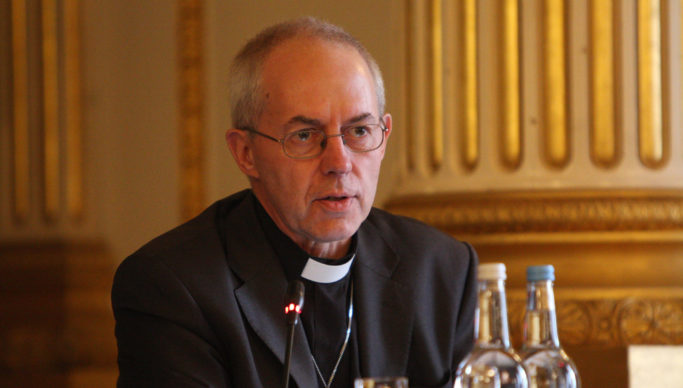
Church of England Leader Criticizes Migration Plan, Expresses Concerns Over Britain’s International Reputation
- By Derek Welch --
- 07 Mar 2024 --
As British politicians debate a bill aimed at deporting illegal migrants to Africa, the Archbishop of Canterbury Justin Welby has warned that the action would diminish the international standing of Britain as it seeks to “outsource our legal and moral responsibilities for refugees and asylum seekers when other countries far poorer are already supporting multitudes more than we are now.”
In a January 29 speech to the House of Lords, Welby criticized the government’s Safety of Rwanda Bill, which is designed to overcome a legal block on a plan to send migrants who reach Britain across the English Channel in small boats to the East African nation of Rwanda.
“My Lords, in almost every tradition of global faith and of humanism around the world the dignity of the individual is at the heart of what is believed,” said Welby, the head of the Church of England and the worldwide Anglican Communion and a member of the House of Lords.
“My Lords, it has already been said, and I agree with it, that the way this bill … works is to obscure the truth that all people, asylum seekers included, are of great value,” the archbishop added. “We can, as a nation, do better than this bill.”
The government’s deportation strategy, wherein asylum seekers would reside permanently in Rwanda, plays a crucial role in Prime Minister Rishi Sunak’s commitment to “stop the boats” transporting unauthorized migrants to Britain. Sunak contends that deporting unauthorized asylum seekers will discourage individuals from undertaking perilous journeys, thereby disrupting the operational model of human smuggling organizations.
No illegal migrant has so far been relocated to Rwanda as part of the government’s initiative, which human rights organizations have criticized as both inhumane and impractical. In November 2023, Britain’s Supreme Court deemed the policy unlawful, citing concerns that Rwanda does not provide a secure environment for refugees.
“With this bill the Government is continuing to seek good objectives in the wrong way,” Welby said in his speech. “It is damaging for asylum seekers in need of protection …,” he added. “It is damaging in respect of constitutional principles and the rule of law.”
Following November’s court decision, Britain and Rwanda entered into an agreement, committing to enhancing safeguards for migrants. The Conservative government led by Sunak asserts that this treaty empowers them to enact legislation designating Rwanda as a secure destination.
Upon receiving approval from Parliament, the legislation will enable the government to “disapply” specific portions of the British human rights law in relation to asylum claims connected to Rwanda, thereby increasing the difficulty of contesting deportations in court.
“The challenge of migration is, as has been said, long term and global,” Welby told members of the House of Lords. “And so must our response be. … We need a wider strategy for refugee policy which involves international cooperation, and equips us for far greater migration flows, perhaps ten times greater in the coming decades, as a result of conflict and climate change and poverty.”



















